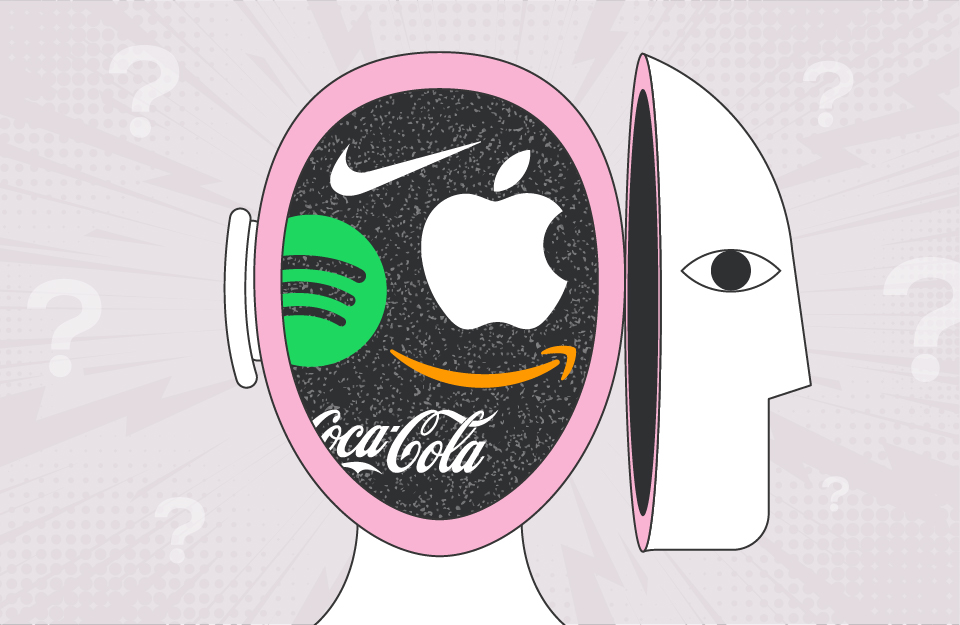“I don’t necessarily agree with everything that I say.”
Professor, philosopher, and prophet Marshall McLuhan remains a somewhat elusive figure, with his reputation fluctuating across the decades. From highly influential to virtually irrelevant to almost forgotten.
Revolutionary at his peak in the 1960s with ideas such as The Global Village, The Medium Is the Massage and Hot & Cold Media – his work created a sea change in how people thought of and discussed media, technology and communications that has carried through to the 21st century.
Born in Edmonton, Alberta, Canada and raised in Winnipeg, he would study at Cambridge before eventually finding his way back home to Canada as a Professor of English at The University of Toronto, where he remained until he died in 1980. With current events and topics as they are, it might be a good time to remember, review and reflect on what he had to say.
A core element of elastic thinking is the ability to recognise patterns; to explore ones that are divergent from what went before, and through this, be able to open up new paths and discussions. Marshall McLuhan observed and analysed patterns in media production and consumption and was most interested in the effects on us.
Marshall McLuhan himself a conservative catholic loved to read but had less time for other media. So, we also must understand his own position of not wishing for change – to mistrust, be sceptical and even fearful of what he referred to as “electronic media”. He believed that to combat what he saw as an onslaught; your best weapon was to think ahead, which is exactly what he did. So far ahead, in fact, we’re still trying to catch up with him.
He left us with a lot to think about, including two of his key ideas – The Global Village and Hot & Cold Media.
The Global Village
Marshall McLuhan was the first person to popularise the concept and to consider its social effects. He described an “all at once” world – interconnected by an electronic nervous system consisting of telephones, radio, and TV. This may sound cosy, but he was actually making the point that too many people too close together too much of the time was not necessarily positive and that it created tension that could lead to conflict. Although his perspective was within the world of the 1950s and 1960s, when television was still new, it has even more relevance today.
Hot & Cool Media
He also explored the idea of what different types of media were and how they affected us. He broke it down into two broadly distinctive categories – hot and cool. Hot media delivers more information because they have taken a single sense and magnified it to maximum effect. They require less participation and demand little interaction from the user because it ‘spoon-feeds’ the content. Typically, the content of hot media is restricted to what the source offers at that specific time. Examples of hot media include radio and film because they engage one sense of the user to such an extent and are rich in sensory data.
Cool Media requires more participation and demands more pattern recognition. They provide less sensory data and request more completion by the viewer. TV, telephone, and reading are ‘low definition’ because they provide less sensory data, consequently demanding more ‘completion’ by the audience. It’s worth noting that although TV is now a rival to film, in McLuhan’s day, it was fairly low resolution.
What is His Legacy?
McLuhan’s legacy and lasting influence are complicated. His own worst enemy, he didn’t write that many books. What’s more, they were often dense or difficult to interpret; even confusing. This was partly because what he was attempting to convey had never really been done before – perhaps clearly expressing some of these concepts was even tricky for the man himself.
The peak of his influence was in the 1960s and 1970s, and following his death in 1980, he had become almost irrelevant. That is until the internet came along, resulting in a resurgence of interest. And when Wired magazine was introduced in 1993 to focus on emerging technologies and how they affect culture, it seemed a logical match to anoint him as their patron saint.
Fast forward another couple of decades to 2022, and he remains as relevant as always. At the time he was just so far forward that it took time to catch up with him. And perhaps now, after further changes and greater context, we can see more clearly what he was trying to say.
What would he think about the way we use the internet today?
What would he say about how some people use some of the platforms some of the time?
He might point you to his discussion of the global village and that constant proximity 24/7, even in the virtual sense, might lead to agitation, which can lead to conflict.
What would he say about the constant use of mobile phones? The medium is the message indeed! The object has, at times, for some people, taken them over completely.
Have we learned the best way for society to understand and make the best use of current technologies? It would seem very healthy to have more discussion around this theme. Advances and new platforms have arrived with ever-increasing speed and regularity that there is little or no time to digest and understand before the next one comes along. There are certainly plenty of benefits to find, but to better fit them into society, we would be wise to understand them better.
The ambiguity that lingers with McLuhan and his work also imbues it with fascination – like a puzzle that has been started but remains incomplete. Whether or not you agree with his investigations isn’t so much the point as the process and involvement in this area of thinking.
Marshall McLuhan loved to talk, and in doing so, he produced many intriguing and bewildering quotable lines. There still isn’t anyone who can say it quite as he did – so best to finish off and let him speak for himself – remember that these are from 50 years ago or more:
“Our Age of Anxiety is, in great part, the result of trying to do today’s jobs with yesterday’s tools!”
“We look at the present through a rear view mirror. We march backwards into the future.”
“Jobs are finished; role-playing has taken over; the job is a passé entity. The job belonged to the specialist. The kids know that they no longer live in a specialist world; you cannot have a goal today … Every kid knows that within three years, everything will have changed — including himself and the goal.”
“We become what we behold. We shape our tools, and thereafter our tools shape us.”
“A point of view can be a dangerous luxury when substituted for insight and understanding.”
“The poet, the artist, the sleuth – whoever sharpens our perception tends to be antisocial; rarely “well-adjusted”, he cannot go along with currents and trends. A strange bond often exists between antisocial types in their power to see environments as they really are. This need to interface, to confront environments with a certain antisocial power is manifest in the famous story “The Emperor’s New Clothes”.”
“Diaper spelled backwards is repaid , think about it.”
“Language does for intelligence what the wheel does for the feet and the body. It enables them to move from thing to thing with greater ease and speed and ever less involvement.”
“Politics will eventually be replaced by imagery. The politician will be only too happy to abdicate in favour of his image, because the image will be much more powerful than he could ever be.”
“I don’t necessarily agree with everything that I say.”




